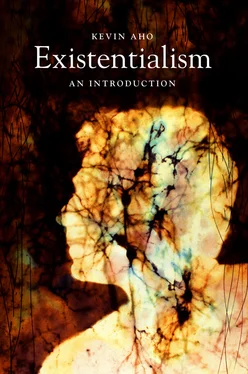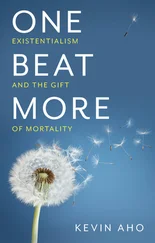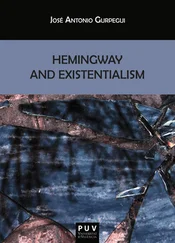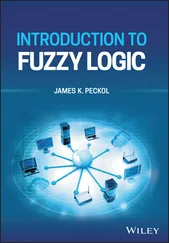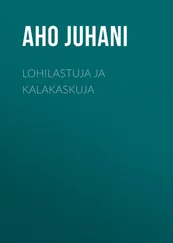These moods are important for the existentialists not only because they disclose basic truths about what it means to be human but because they have the power to pull us out of inauthenticity, out of our various modes of self-deception. But it is important not to confuse the transformative power that existentialists attribute to these emotions with the popular ideas of ‘getting in touch with one's feelings,’ ‘being true to one's inner self,’ or ‘finding the child within.’ These notions are largely holdovers of Romanticism, the sprawling and disjointed cultural reaction to Enlightenment rationality and the dehumanizing aspects of modern society. On the Romantic account, it is by attending to one's deepest and innermost feelings — rather than to disinterested reason — that the ‘ real self’ can emerge and reclaim a primitive unity or oneness with the natural world, a unity that we once had and is still present in the simple spontaneous goodness of children (see Guignon 2004a, 49–77). This sentiment is perhaps most famously expressed in Rousseau's Emile (1762) when he writes: “ To exist is to feel , our feeling is undoubtedly earlier than our intelligence, and we had feelings before we had ideas. … Let us be simpler and less pretentious; let us be content with the first feelings we experience in ourselves, since science always brings us back to these, unless it has led us astray” (1999, 210). This view suggests that beneath the instrumental and deforming conventions of rational society is a human nature that consists of spontaneous feelings that are fundamentally good.
Existentialists challenge this notion of innate human goodness. They, of course, do not deny the crucial role that feelings play in our lives or that humans are capable of spontaneous acts of tenderness and love, but they also acknowledge our darker side, for instance, the pleasure derived from senseless acts of violence and cruelty. In The Brothers Karamazov , Dostoevsky's character Ivan Karamazov describes the voluptuous experience of a “well-educated and intelligent” father beating his young daughter with a rod:
I know for certain that there are floggers who get more excited with every stroke, to the point of sensuality, literal sensuality, more and more, progressively, with each new stroke. They flog for one minute, they flog for five minutes, they flog for ten minutes — longer, harder, faster, sharper. The child is crying, the child finally cannot cry, she has no breath left: “Papa, papa, dear papa!” (1990, 241)
Dostoevsky concludes that these kinds of behaviors are not reserved for the sick and demented. They are sensual capacities that we all share, and it is naïve to think that they are not part of what it means to be human. “There is, of course, a beast hidden in every man,” writes Dostoevsky, “a beast of rage, a beast of sensual inflammability at the cries of the tormented victim, an unrestrained beast let off the chain” (241–242). And if we were to suggest that this kind of interpretation is irrational and absurd, Dostoevsky replies, “I tell you that absurdities are all too necessary on earth. The world stands on absurdities and without them perhaps nothing would happen” (243).
Nietzsche makes a similar point in acknowledging the human instinct for cruelty and violence, an aspect of our animal nature expressed most explicitly in the pleasure we derive in hurting others. Consider this passage from his On the Genealogy of Morals :
To witness suffering does one good, to inflict it even more so — that is a harsh proposition, but a fundamental one, an old-powerful human all-too-human proposition, one to which perhaps even the apes would subscribe: it is said that in devising bizarre cruelties they already to a large extent anticipate and at the same time ‘rehearse’ man. No festivity without cruelty: such is the lesson of the earliest, longest period in the history of mankind — and even in punishment there is so much that is festive. (1996, II, 6)
This interpretation suggests that the confluence of feeling that lurks below rational thought can be tender and cruel, creative and destructive and, therefore, transcends the simple binary between good and evil. In order to be true to ourselves, we have to acknowledge and accept the drives of the whole person , including those that are darkest and most dangerous. This is why, for existentialists like Nietzsche, traditional moralists get it wrong. They are not trying to sublimate or control our sensual natures; they are cultivating weakness and impotence by trying to deny them altogether. “Instead of employing the great sources of strength, those impetuous torrents of the soul that are so often dangerous and overwhelming, and economizing them, this most short-sighted and pernicious mode of thought, the moral code of thought, wants to make them dry up” (1968, 383).
In acknowledging our unconscious drives for destruction and cruelty, writers such as Dostoevsky and Nietzsche anticipate the insights of depth psychology, psychoanalysis, and Sigmund Freud's (1856–1939) seminal idea of the ‘Id.’ In fact, Freud famously remarked that Dostoevsky “cannot be understood without psychoanalysis — i.e., he isn't in need of it because he illustrates it himself in every character and every sentence” (cited in Frank 1976, 381). And Nietzsche had “more penetrating knowledge of himself than any man who ever lived or was likely to live” (cited in Jones 1955, 385). These existential insights informed the development of the modern novel, introducing primal and subversive anti-heroes such as Kurtz in Joseph Conrad's Heart of Darkness (1903), Jake Barnes in Ernest Hemingway's The Sun Also Rises (1926), and, more recently, Tyler Durden in Chuck Palahniuk's Fight Club (1996). These depictions suggest that if authenticity is the affective recovery of the ‘ real you ,’ then we ought to be worried about what we might uncover. Indeed, it could be that the self-deceptive and conformist routines of ‘the they’ are actually protecting us from who we really are .
The existentialist protest against the ideal of human goodness reveals that being authentic has little to do with being morally ‘good’ because there is no pre-given core of goodness inside of us to begin with, and, with the ‘death of God,’ there is no moral absolute that can determine what is, in fact, good. Indeed, as we turn to different conceptions of authenticity in the existentialist tradition, we see that the commitment to being true to oneself may require us to suspend our duty to universal moral principles. And it is precisely because we have to choose between being ethical (‘ doing what is right ’) and being an individual (‘ being true to oneself ’) that the prospect of authenticity can be so terrifying. This tension is powerfully expressed in Kierkegaard's conception of authenticity.
As we saw earlier, Kierkegaard pioneered the existentialist critique of philosophical detachment and objectivity by arguing that it has no connection to ‘ the highest truth attainable ,’ that is, to the concrete and particular concerns of the individual. By taking the standpoint of a disinterested spectator, philosophers cut themselves off from their own subjective truths. And it is these kinds of truths that are most important because they alone can tell me ‘ what I am to do .’ For Kierkegaard, it is only when we live our lives on the basis of these passionate inward commitments that we actually succeed in becoming a ‘self’ or ‘individual.’ This process usually involves moving through three stages or spheres of existence, which he identifies as the ‘aesthetic,’ the ‘ethical,’ and the ‘religious’ stages.
Читать дальше
